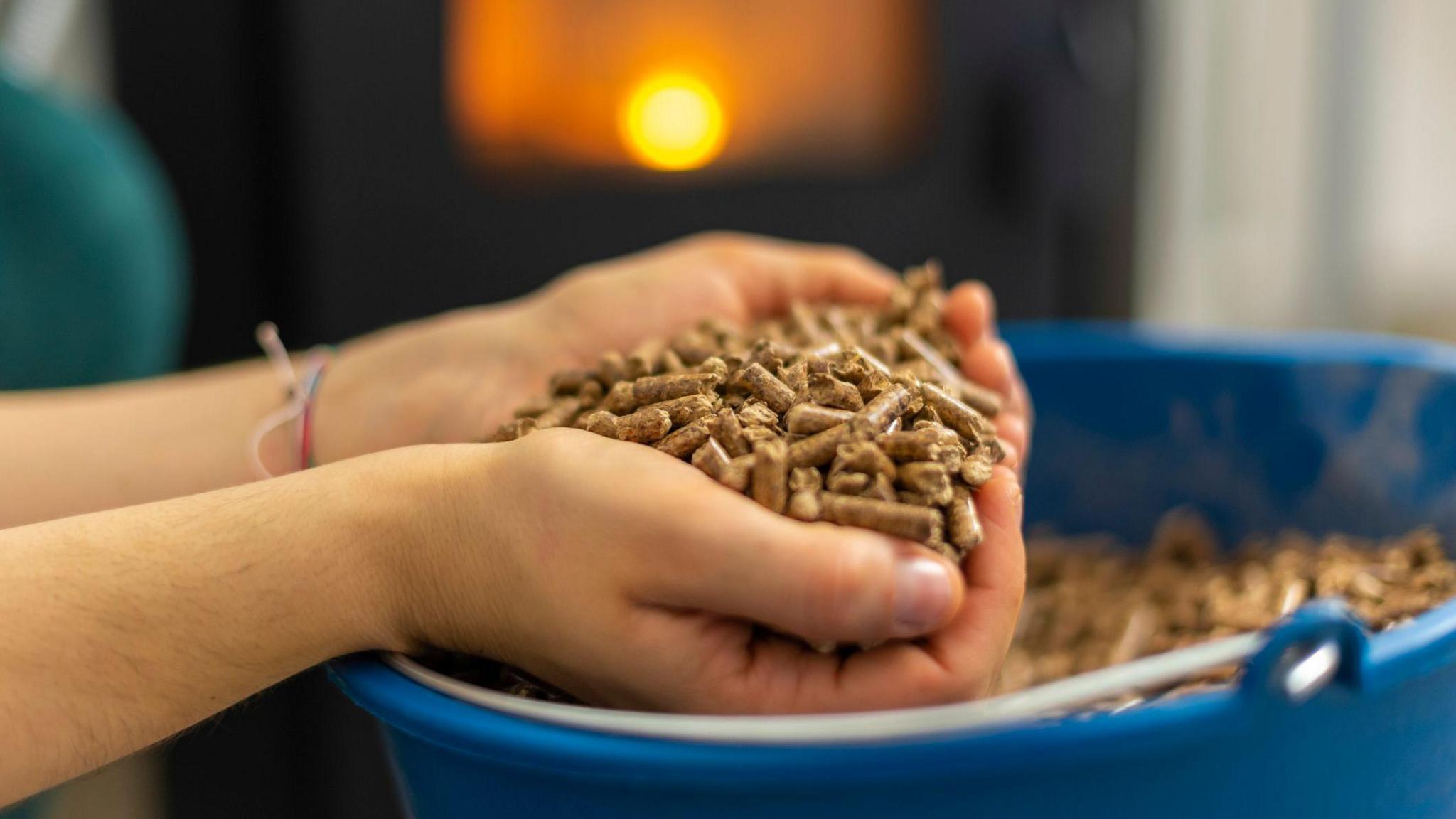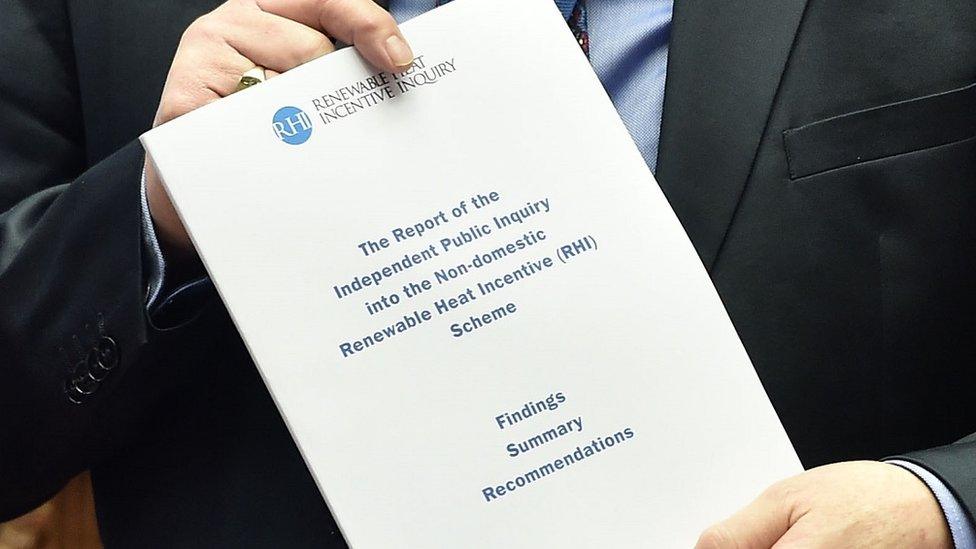'Unlikely' RHI recommendations will be implemented

The RHI scheme encouraged a switch to wood pellet boilers
- Published
It is “unlikely” all the recommendations of the Renewable Heat Incentive Inquiry will be implemented, more than four years after its conclusion, a report has said.
There has been regression on some elements, including around record-keeping, according to Northern Ireland’s auditor general.
The Audit Office (NIAO) report by Dorinnia Carville found that 26 out of 42 recommendations it focused on had been implemented, but the overall pace was slow.
Proposed action is unlikely to meet the inquiry’s recommendations in full in five areas.
A spokesperson for the Department of Finance (DoF) said that "considerable work" has been done on reforms recommended by the inquiry.
"This is reflected in 26 recommendations having been implemented with a further 11 to be implemented in the near future", they said.
They said that "progress was made within the context of a global pandemic, absence of functioning institutions and extreme budget pressures".
However, Ms Carville said the lack of progress was concerning.
“The inquiry’s findings demonstrated the significant learning and improvement that was needed from the NI Civil Service to rebuild public confidence," she said.
“Four years on, a significant number of recommendations have yet to be fully implemented, and, in our assessment, several are unlikely to be properly addressed by the actions currently planned.”
The NIAO disagreed with the DoF’s assessment of progress in 10 of the recommendations, saying half of them would not be fully implemented even if given further time and the other half had not reached the required threshold yet.
Ms Carville also said it was vital there was appropriate oversight going forward, highlighting that a Stormont Executive subcommittee—previously established for this purpose—last met in December 2020 and no equivalent subcommittee had been constituted since the executive was restored in February.
“As a result, this report calls on the Department of Finance to explore suitable oversight mechanisms for the remaining recommendations—both those of the inquiry and those in today’s report," she said.
The NIAO periodically reviews progress on implementing the lessons learned from the RHI Scheme.
There are 44 recommendations, of which 42 were examined in this review by the NIAO.
'Damning indictment'
The Social Democratic and Labour Party's Matthew O'Toole said the report was "a damning indictment of the failure of Stormont to reform itself".
"This report paints a bleak picture of a Stormont that has endured what should have been an existential scandal but simply returned to its old ways afterwards," the leader of the opposition at Stormont said.
"We are now nearly half a decade into the new decade that was much heralded in 2020, but neither the executive parties nor the civil service leadership appear to be serious about a new approach."
What was the RHI scandal?
The RHI scheme paid 1,200 businesses to switch from oil and gas to what was meant to be environmentally-friendly heating, using wood pellet boilers.
However, the subsidy payment was higher than the cost of the fuel, creating an incentive to use the boilers to generate income.
It became known as the cash-for-ash scandal.
The revelations caused a political crisis that led to the collapse of Northern Ireland's devolved government in January 2017, as the then Deputy First Minister Martin McGuinness resigned in protest at the then First Minister Arlene Foster's handling of the scandal.
A public inquiry into the running of the RHI scheme was set up in 2017 and this cost taxpayers £13m.
The inquiry concluded it was not corruption that led to the scheme running out of budgetary control but rather flaws in its design as well as errors and lack of attention on the part of those responsible for overseeing it.
Three years after it collapsed over the RHI controversy, Stormont was restored in January 2020 under the New Decade, New Approach, external agreement.
That 2020 agreement stated the RHI scheme should be closed down and replaced with a new scheme that "effectively cuts carbon emissions".
- Published13 March 2020
